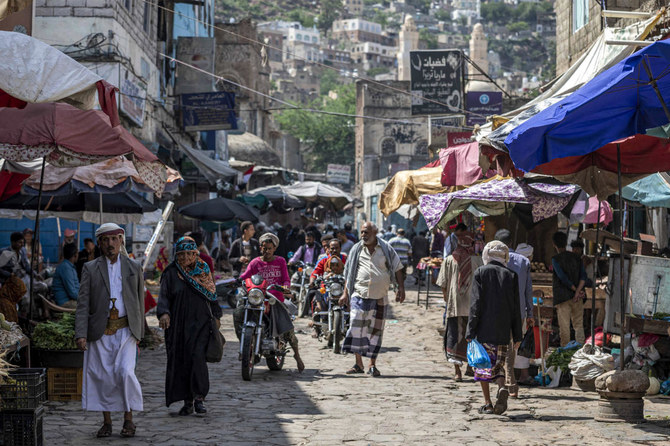AL-MUKALLA: A new round of UN-brokered talks between the Iran-backed Houthis and the internationally recognized government on a prisoner swap began on Saturday in the Swiss city of Bern.
If successful, officials and analysts say, hundreds of detained Yemenis would be released, and it would be a major step toward more comprehensive negotiations to end the war in Yemen.
The Yemen UN Envoy Hans Grundberg said that the seventh meeting of the Supervisory Committee on the Implementation of the Detainees’ Exchange Agreement convened on Saturday in Switzerland under the auspices of his office and the International Committee of the Red Cross.
The Yemenis will work to discuss the unconditional release of all prisoners, detainees and missing persons.
“I hope the parties are ready to engage in serious and forthcoming discussions to agree on releasing as many detainees as possible,” Grundberg said, urging Yemeni negotiators to work as hard as they could to produce real achievements that may free thousands of Yemenis before the holy month of Ramadan begins on March 23.
“With Ramadan approaching, I urge the parties to fulfill the commitments they made, not just to each other but also to the thousands of Yemeni families who have been waiting to be reunited with their loved ones for far too long.”
The UN and regional and international mediators have been pushing Yemeni sides to reach an agreement to free thousands of inmates, inspired by a significant halt in hostilities throughout the country since April last year under the UN-brokered truce.
The latest big prisoner exchange between the Houthis and the Yemeni government occurred in October 2020, with over 1,000 prisoners released.
Earlier rounds of discussions between the two parties failed to result in the release of captives, as Yemeni sides accused each other of requesting the release of fake names and even wanting to swap civilian abductees with warriors.
Majed Fadhail, deputy minister of human rights and a member of the government’s six-man delegation, said the talks would last for 11 days and that the government delegation would focus on exchanging all prisoners with the Houthis.
He added that the Presidential Leadership Council and the government had ordered them to ensure the success of the negotiations.
“Every day that an abducted person remains in jail is a source of enormous agony not just for his or her family, but also for us in the government since we share their anguish,” Fadhail said, according to the official news agency SABA.
Abdul Kader Al-Murtadha, head of the Houthi delegation, expressed hope that the discussions would yield “decisive” outcomes.
At the same time, Yemeni human rights advocates, organizations, and families of detainees and abductees have urged Yemeni factions to ease the suffering of thousands of detainees and abductees.
Amat Al-Salam Al-Hajj, chairperson of the Abductees’ Mothers Association, an umbrella group representing thousands of female family members of civilian war captives, called on all parties to emerge from the negotiations with an agreement to free all detainees throughout the country.
“I hope that these discussions will result in comprehensive solutions and the release of all abducted people. Their families and children have suffered for eight years while they have been tormented in jails,” she told Arab News.
Yemen’s Journalist Syndicate made another appeal to Yemeni negotiators to work for the release of imprisoned journalists, mainly four detained by the Houthis and condemned to death.
“As discussions begin on the file of prisoners and detainees, we appeal that the case of the abducted journalists is given priority and attention since they are innocent civilians who have been subjected to the cruelest kinds of torture and abuse,” the syndicate said.
























